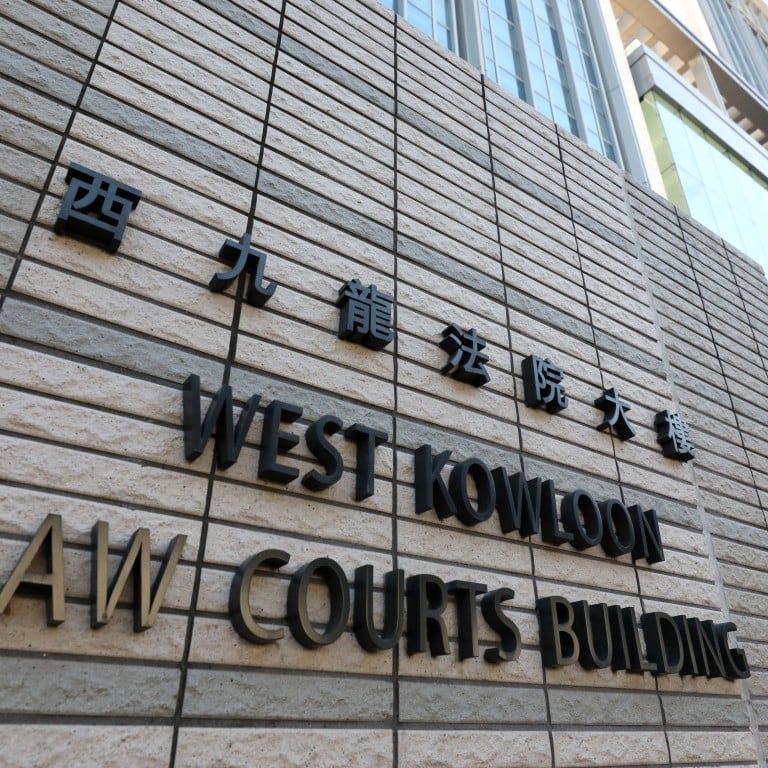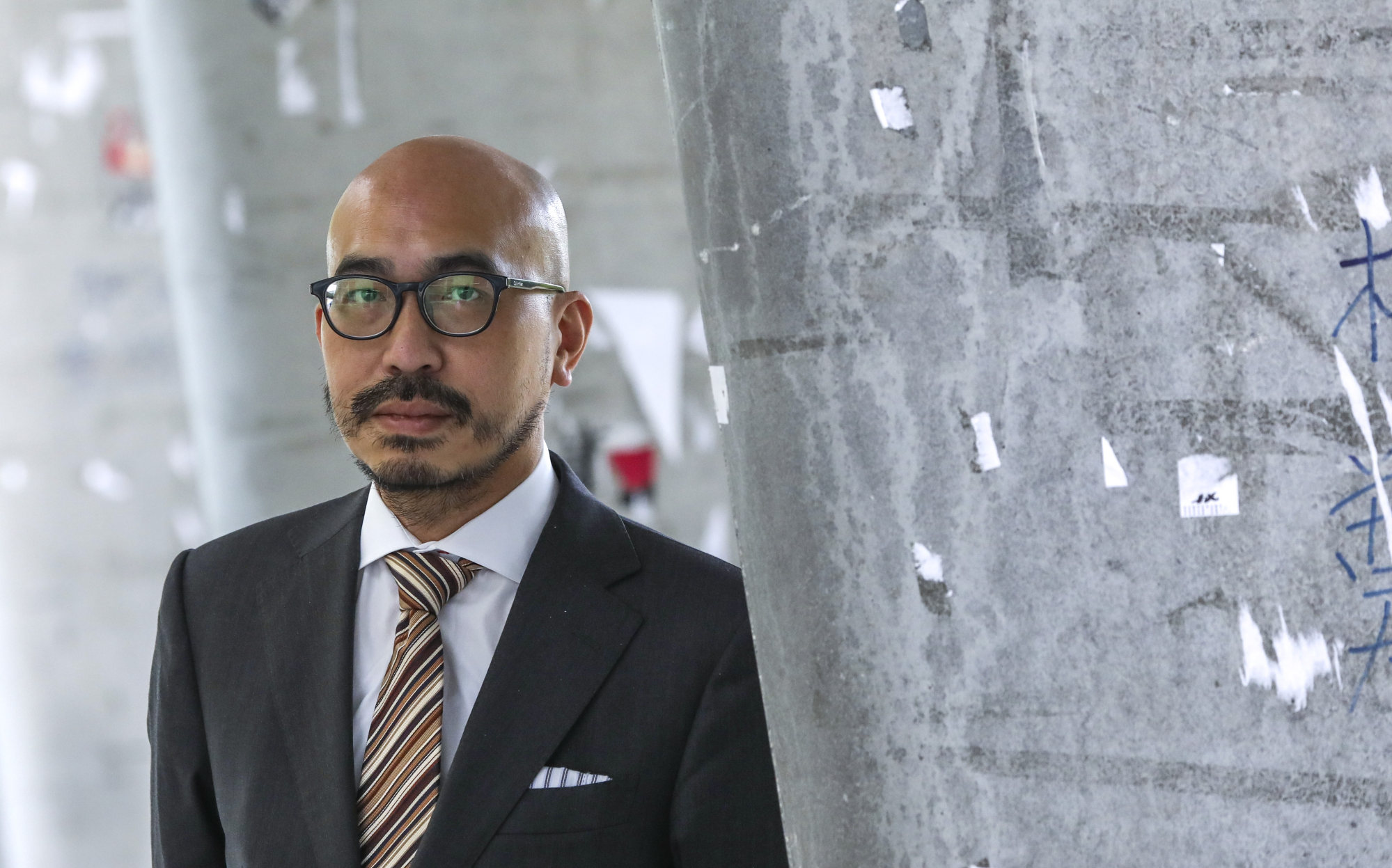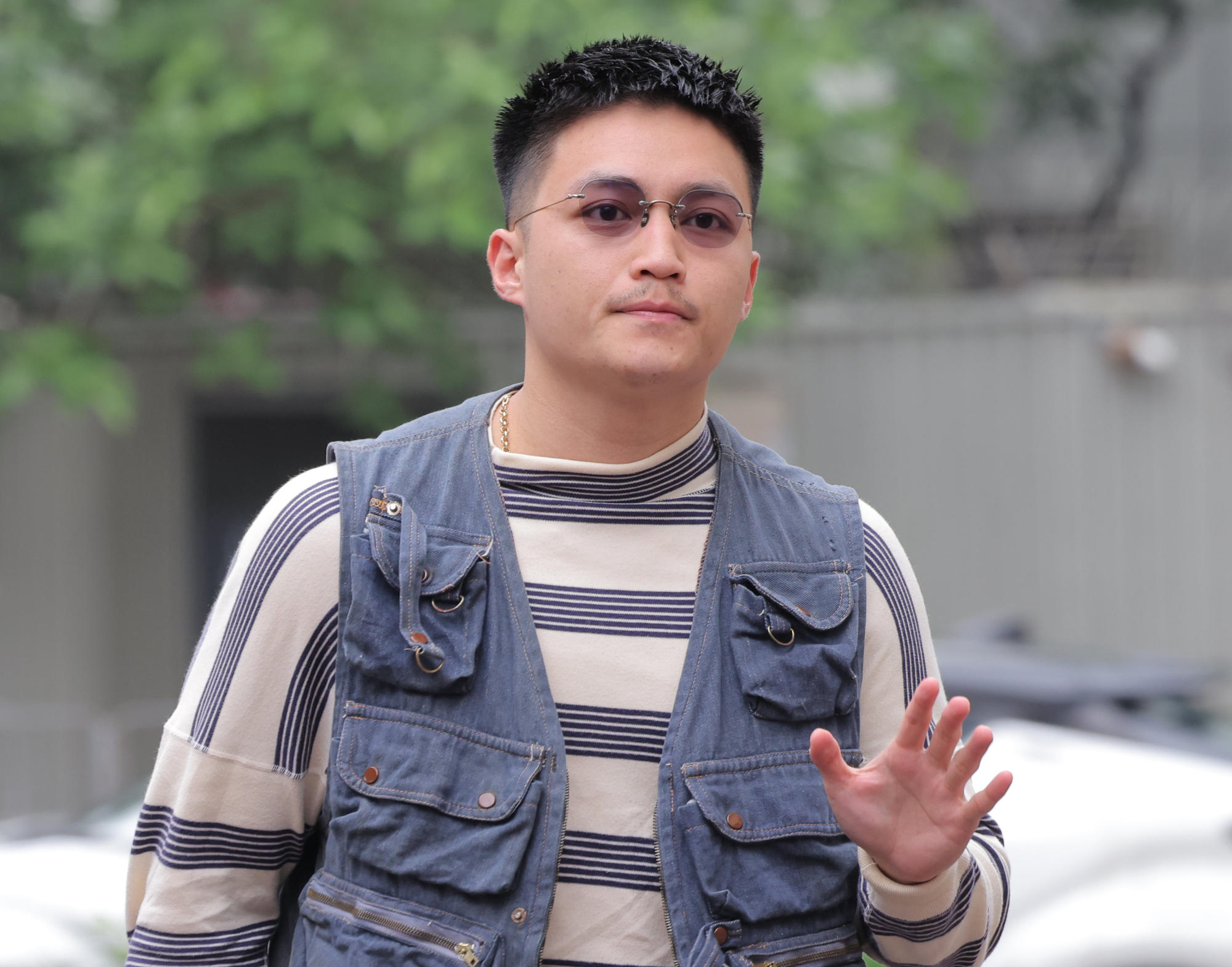
Hong Kong 47 trial: lawyer urges acquittal of 16 opposition figures in subversion case over national security law ‘loophole’
- Steven Kwan says prosecution required under Beijing-imposed law to prove an element of violence to substantiate a conspiracy offence to subvert state power
- The opposition-led primary was not illegal because those involved did not intend to resort to violence, he adds
A lawyer representing one of 16 opposition figures facing a subversion trial over their roles in an unofficial legislative primary election three years ago in Hong Kong has called for their acquittal, citing what he argues is a possible loophole in the national security law.
West Kowloon Court on Monday heard the final submissions from Steven Kwan Man-wai as the 10-month trial over what prosecutors alleged was a carefully crafted plan to paralyse the government and topple the city leader drew to a close.
Speaking on behalf of former district councillor Lee Yue-shun, the lawyer said the Beijing-imposed law required the prosecution to prove an element of violence to substantiate a conspiracy offence to subvert state power.
Kwan said the opposition-led primary, held to win control of the Legislative Council and block government budgets, was not illegal because those involved did not intend to resort to violent means.

That could imply the security law had a “lacuna” to fill, the counsel conceded, but stressed any amendment to the legal text should be carried out by Beijing rather than the court.
The 16 defendants were among 47 politicians and activists accused of trying to seize a majority in Legco and using it to indiscriminately reject government budgets, a move that could have forced then-chief executive Carrie Lam Cheng Yuet-ngor to step down.
Four organisers, including legal academic Benny Tai Yiu-ting, were among 31 defendants who pleaded guilty or indicated they would admit liability.
A major contention at the trial was whether the remaining 16 defendants had used any “unlawful means” to achieve their political goals.
Hong Kong 47: court hears closing submissions over subversion allegations
In a submission that raised eyebrows, Kwan said any act committed to overthrow the state should entail “physical coercion”, adding violent conduct without an intent to attack the government might not be illegal.
Mr Justice Andrew Chan Hing-wai, one of three judges overseeing the trial, suggested a cyberattack against authorities or employing the coronavirus as a biological weapon would not qualify as a subversion offence based on that logic.
Kwan said those examples might instead constitute terrorist acts.
Chan pointed out the security law was “drafted up in the north” and that common law practices relating to a legal text’s interpretation might not be applicable.

His colleague, Mr Justice Alex Lee Wan-tang, questioned whether any official decisions in respect of the security law had confined a subversion offence to the use of force or threat to use force. Kwan answered in the negative.
But Kwan contended there was strong evidence to show it was a genuine political goal pursued by the accused and that they might reconsider whether to veto the budgets if the government did give in to protesters’ demands.
Hong Kong court gives go-ahead for subversion case against 16 opposition figures
The three-judge panel, approved by the chief executive to hear national security cases, previously said it might take up to four months to issue its verdict.
The 31 defendants who chose to admit the subversion charge will return to court for mitigation statements and sentencing after the verdict on their peers is announced.
Thirty-five of the 47 accused are currently remanded in custody, with some being incarcerated for more than two years and nine months since their prosecution in March 2021.
